
A young ensign—“real eager to get off that ship and get into action,” in the recollection of an enlisted Navy man who encountered him—sat down and wrote a letter to his younger brother, who one day would be my father.
Philip Alvan Shribman, a recent graduate of Dartmouth and just a month away from his 22nd birthday, was not worldly but understood that he had been thrust into a world conflict that was more than a contest of arms. At stake were the life, customs, and values that he knew. He was a quiet young man, taciturn in the old New England way, but he had much to say in this letter, written from the precipice of battle to a brother on the precipice of adulthood. His scrawl consumed five pages of Navy stationery.
“It’s growing on me with increasing rapidity that you’re about set to go to college,” he wrote to his brother, Dick, then living with my grandparents in Salem, Massachusetts, “and tho I’m one hell of a guy to talk—and tho I hate preaching—let me just write this & we’ll call it quits.”
He acknowledged from the start that “this letter won’t do much good”—a letter that, in the eight decades since it was written, has been read by three generations of my family. In it, Phil Shribman set out the virtues and values of the liberal arts at a time when universities from coast to coast were transitioning into training grounds for America’s armed forces.
“What you’ll learn in college won’t be worth a God-damned,” Phil told Dick. “But you’ll learn a way of life perhaps—a way to get on with people—an appreciation perhaps for just one thing: music, art, a book—all of this is bound to be unconscious learning— it’s part of a liberal education in the broad sense of the term.”
This story is from the May 2024 edition of The Atlantic.
Start your 7-day Magzter GOLD free trial to access thousands of curated premium stories, and 9,000+ magazines and newspapers.
Already a subscriber ? Sign In
This story is from the May 2024 edition of The Atlantic.
Start your 7-day Magzter GOLD free trial to access thousands of curated premium stories, and 9,000+ magazines and newspapers.
Already a subscriber? Sign In
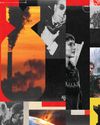
Apocalypse, Constantly
Humans love to imagine their own demise.

A Palestinian American Sex and the City
Betty Shamieh's debut novel is a rebellious rom-com.
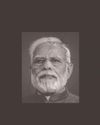
Modi's Failure
Why India is losing faith in its strongman leader
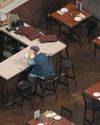
The Anti-Social Century
Americans are now spending more time alone than ever. It's changing our personalities, our politics, and even our relationship to reality.

The Wild Charity of Saint Francis
The guide we need, now that kindness is countercultural
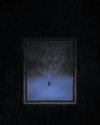
Where Han Kang's Nightmares Come From
In her novels, the South Korean Nobel laureate returns again and again to her countrys bloody past.
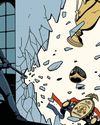
TROPHY HUNTERS
A GROUP OF CHILDHOOD FRIENDS PULLED OFF A STRING OF THE MOST AUDACIOUS SPORTS-MEMORABILIA HEISTS IN AMERICAN HISTORY. THEN THEY DID SOMETHING REALLY CRAZY.

THE NEW RASPUTINS
Anti-science mysticism is enabling autocracy around the globe.
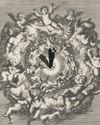
ARMY OF GOD
AMERICAN CHRISTIANS ARE EMBRACING A CHARISMATIC MOVEMENT KNOWN AS THE NEW APOSTOLIC REFORMATION, WHICH SEEKS TO DESTROY THE SECULAR STATE. Now THEIR WAR BEGINS.
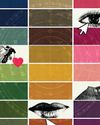
WHAT NOT TO WEAR
The false promise of seasonal-color analysis